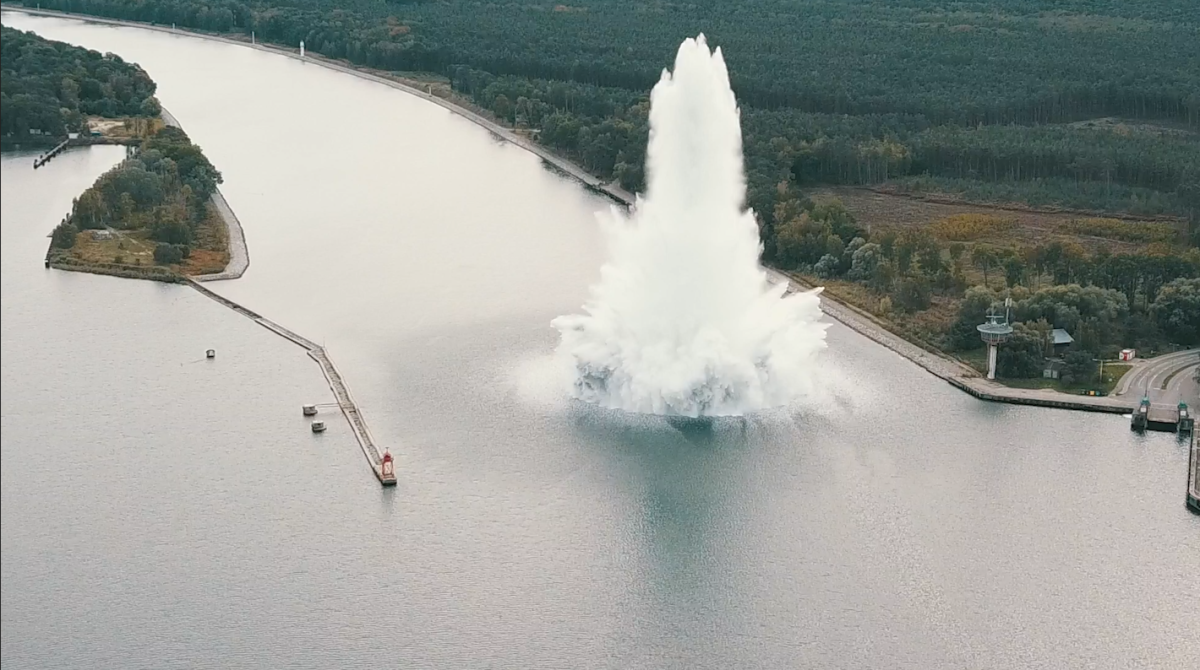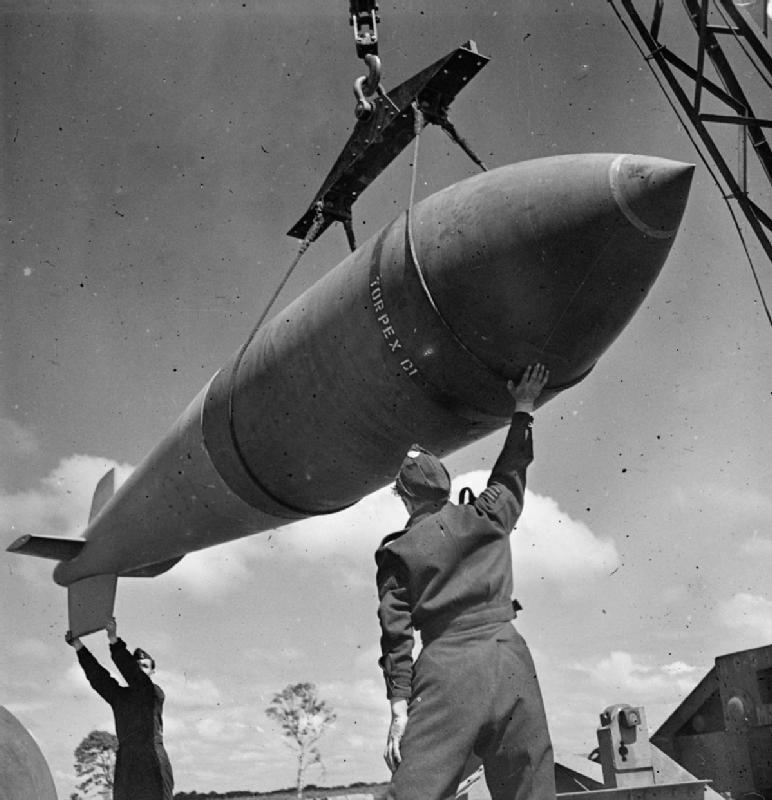A so-called “earthquake bomb” from the Second World War blew up 75 years behind schedule on Tuesday after a failed underwater operation to defuse it in Poland.

Video shows the 5.4-tonne (12,000-pound) bomb exploding in a towering plume of water and steam under the Piast Canal, a key channel into the Baltic Sea for Germany’s warships during the Second World War.
The bomb included approximately 2.4 tonnes (5,300 pounds) of explosive material, making it the largest of its kind ever left behind in Poland, according to the Polish navy’s 8th Coastal Defence Flotilla.
Approximately 750 people were evacuated from the nearby town of Swinoujscie ahead of the bomb disposal operation on Tuesday. Officials had given the operation a 50 per cent chance of success, so the explosion was not a surprise.
Bomb-squad divers escaped the explosion without injury and no bystanders were hurt in the blast, officials say.
The explosive, known as a Tallboy bomb, was dropped by Britain’s Royal Air Force (RAF) in an attack on the German cruiser Lutzow in 1945. The bomb missed its target and fell to the bottom of the canal, where it sank deep into the mud and lay dormant for decades. It was discovered last year with only its nose exposed.

Get daily National news
Tallboy bombs were 6.4 metres long and roughly 1 metre wide at their maximum diameter, according to Canada’s Bomber Command Museum.
The Polish navy used a bomb disposal robot to try burning away the Tallboy’s explosive charge without detonating it, BBC reports. The process, known as deflagration, went awry and turned into a detonation, according to navy spokesperson Lt-Comdr. Grzegorz Lewandowski.
“The object can be considered neutralized. It will not pose any more threat to the Szczecin-Swinoujscie shipping channel,” he said on Tuesday.
“The operation was carried out perfectly and safely and the bomb is safe now.”
Officials were reluctant to try a controlled detonation of the bomb, which they feared might cause damage to a nearby liquified natural gas terminal and other infrastructure.
The terminal was unharmed and there was no other damage after the underwater blast, Swinoujscie’s mayor told the state-run PAP news outlet.
German-occupied Poland was heavily bombed in the latter days of the Second World War, and unexploded munitions are still unearthed across the country each year.
— With files from Reuters










Comments
Want to discuss? Please read our Commenting Policy first.